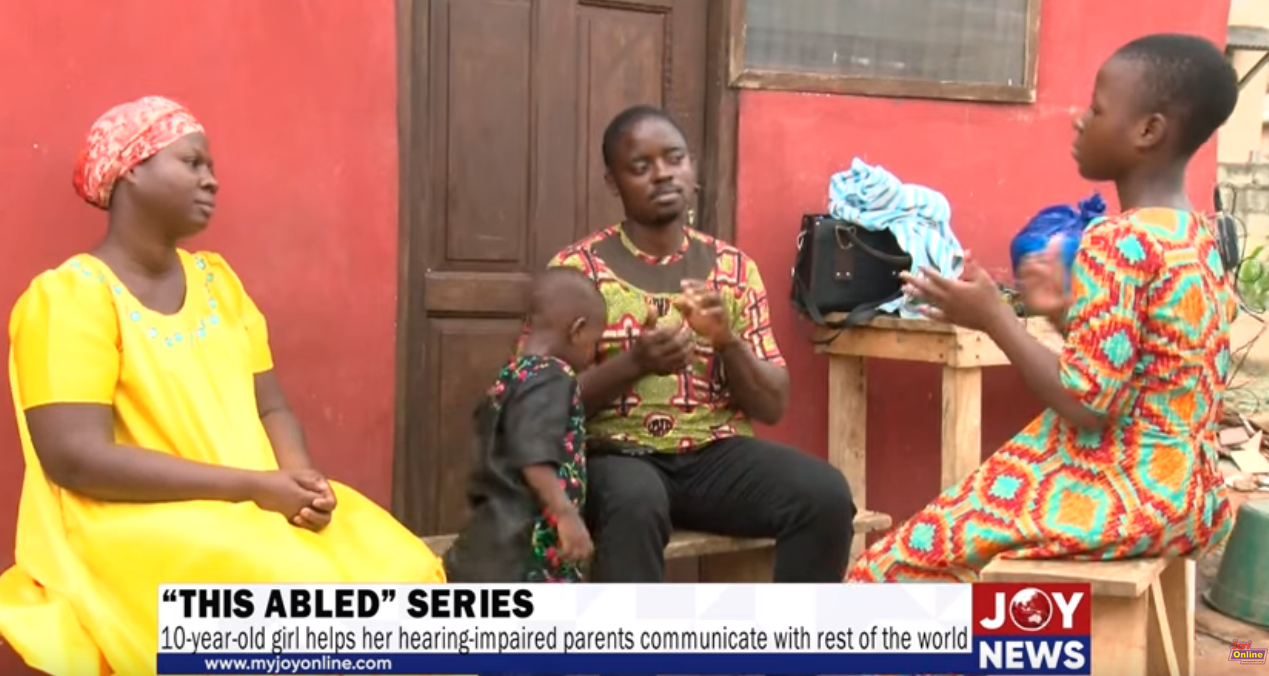ThisAbledSeries: 10-year-old girl becomes her deaf parents’ lifeline amid poverty and prejudice – Nsemkeka
At just ten years old, Regina Osei carries a responsibility many adults would find overwhelming; she is the voice of her deaf parents.
Born into a home where silence was the norm, Regina learned sign language before she ever spoke a word. For the first two years of her life, she didn’t utter a sound not because she couldn’t, but because her world simply had no need for spoken words.
“I only knew signs. That was our way of speaking,” she says.
It wasn’t until she began spending time with her grandparents that her parents noticed something: Regina was trying to talk.
“My mum took me to the hospital to check,” she recalls. “The doctor told her, ‘Your daughter isn’t deaf. She can speak.’ My mum felt so happy.”
That moment changed everything. Suddenly, Regina became more than just a child. She became an interpreter, a bridge between the hearing world and her parents’ silent one.
Whether at the hospital, in public transport, or at the market, Regina speaks on behalf of her parents explaining, clarifying and translating. She also helps other members of the deaf community when needed.
“I feel excited when I translate,” she says with pride. “If I couldn’t translate, I wouldn’t be like this.”
Inspired by her experiences, Regina hopes to become a professional interpreter when she grows up but her dreams don’t stop there.
“I want to be president,” she says with conviction. “If I become president, I’ll be rich and I can help people with disabilities.”
Despite her strength, Regina’s journey hasn’t been easy. At school, she sometimes feels alone. While her classmates flaunt their phones and tablets on special days, she’s often left out.
“They say my parents are poor because they’re deaf. Some even say I should leave them. But I don’t say anything back. I know they work hard.”
Her father, the family’s sole breadwinner, juggles multiple responsibilities paying school fees, and supporting the household. Her mother who learned sewing skills now has abandoned it because of the discrimination she faces.
“My mum is learning how to sew. My dad pays for everything school fees, food, money for the market,” Regina explains. “They’re trying their best.”
Despite the odds, Regina is thriving. She credits her early learning environment, filled with phonics and picture books, for helping her translate better. It also built her confidence.
She dreams of a future where children like her aren’t mocked, but celebrated. A future where no one has to choose between love and acceptance. A future where disability doesn’t mean disadvantage.

